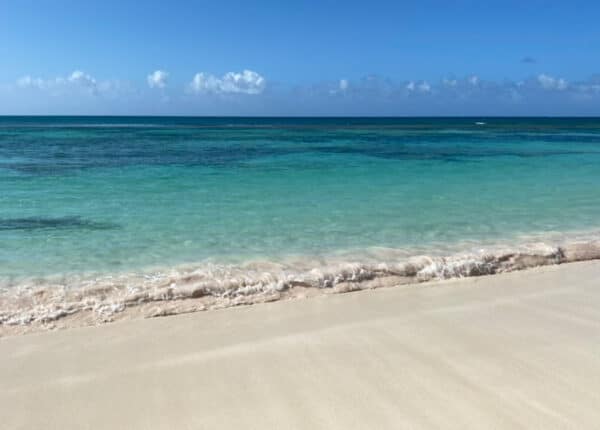Chung: Fixing Jamaica’s Structural Deficiencies to See Growth
By Dennis Chung
CJ Contributor
THERE were two occurrences within the past week that reminded me that Jamaica still has a lot to do in order to see long-term sustainable development.
There was an announcement that an International Monetary Fund (IMF) team is on the island, and it is expected that a staff-level agreement should be reached after this visit. This means that we can expect board approval within six weeks, which would be just before the 2013/14 budget is tabled.
There seems to be general acceptance that any IMF agreement is just a stop-gap measure, as articulated by Prime Minister Portia Simpson Miller and more recently the Private Sector Organization of Jamaica (PSOJ) president Christopher Zacca. What is also evident is that the government has to be careful not to get an agreement like the 2010 one where the targets set were unrealistic and never had a chance of being met.
Correctly, the position of the PNP’s NEC is that there should be no new taxes, which is a position I have supported for years now. This position is supported by the numbers that show that since fiscal year 2003/04, we have seen four tax packages up to 2012/13 and the shortfall in collections has been more than the tax package. For the current financial year the tax package is $25 billion, and already we see a shortfall of $11 billion to December 2012, with the highest projected months to come. It is clear that the only effect of tax packages is to reduce disposable income, economic activity, and push inflation. So the position of the NEC is an enlightened one.
The other event of interest is the development: re the Office of Utilities Regulation (OUR) terminating the approval of the Jamaica Public Service Company (JPS) to pursue the liquefied natural gas (LNG) facility.
This is one of the most impractical decisions to have come out of that body, and there have been a few.
What is the rationale for denying the JPS another 30 days, when they were the sole bidder and we need an energy solution like yesterday? I mean, are we going to go over the bidding process again, only to select JPS as the sole bidder again?
Do we expect that after making such a decision that other persons, seeing that after JPS has spent US$2 million on this process are going to compete for the facility? How many persons do we think have US$600 million sitting down and waiting to invest, especially given the monopoly hold that JPS has on the industry?
And I say this having indicated at the start of the LNG project that it would not have come to fruition, in the time projected, and being one who has always believed that coal is the most practical way to go for industrial energy, and renewable for retail and office consumption.
It just does not make any practical sense to turn down JPS’s request for an additional 30 days. Even if we do not see the savings on electricity cost, at least we would have seen the benefits of the investment in the economy.
Anyway, I have given up trying to understand the mental workings of some of our bureaucrats.
In any event, my pet peeve is why we seem to stand around and wait on long-term solutions. Why do we not look at the plausible short-term solutions to 60 per cent of our oil consumption, in the form of retail and transportation consumption? If we had acted on these four years ago, then we could have saved at least US$2 billion on our trade deficit.
So the country stops as we focus on getting an IMF agreement and long-term energy solution. We fail to understand that we can at the same time, and should, work on other short-term policies to reduce the urgency for these longer-term policies.
The other area that we do not seem to understand how to resolve is the matter of public sector bureaucracy. When the PSTU was being set up, a few years ago, I had indicated that we would not see any benefit from it in the projected two-year time period. It has been approximately four years now and we still are debating how to deal with public sector bureaucracy.
I said it then and I say it again, we cannot bring efficiency to the bureaucracy by centralizing the solution in the same bureaucracy it is supposed to improve.
The most prudent way to bring efficiency to the public sector is to (1) reform the rules that govern public sector bodies, so that things do not take forever to happen, like public sector rationalization; and (2) put good people in charge of these public sector bodies with the requisite authority and objectives, and pay them a part of their salary based on agreed improvements. Instead, we argue about how much money some of these bureaucrats are paid instead of what value they are adding.
As an example, if you pay someone $2 million, who adds $1 million value, and someone else $20 million, who adds $30 million value, then who is more expensive?
It is time for us to change the way we approach solutions to our challenges.
We must understand that we shouldn’t wait around on major projects to fix our structural issues, because many times the small actions can add a lot more value. We need to focus not just on major announcements.
Again, I state my view that we can see short-term solution to the energy crisis if we make the right policy decisions, and in addition, we can see improved public sector operations if we focus on solving the public sector individually.
Until we realize this and take the necessary actions, then we will certainly get an IMF agreement but will find ourselves back in this economic quandary sooner rather than later.
Dennis Chung is a chartered accountant and is currently Vice President of the Institute of Chartered Accountants of Jamaica. He has written two books: Charting Jamaica’s Economic and Social Development – 2009; and Achieving Life’s Equilibrium – balancing health, wealth, and happiness for optimal living – 2012. Both books are available at Amazon in both digital and paperback format. His blog isdcjottings.blogspot.com. He can be reached at drachung@gmail.com.







